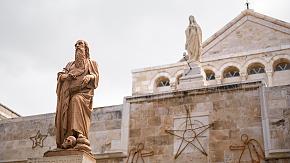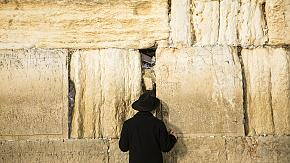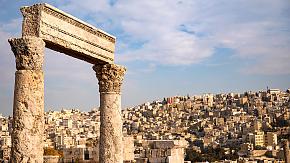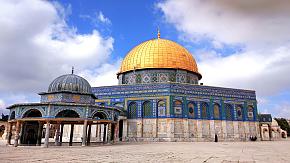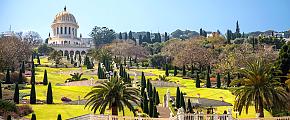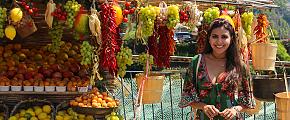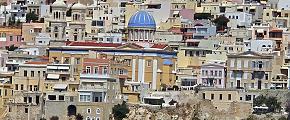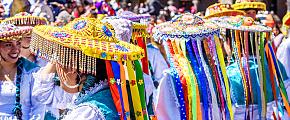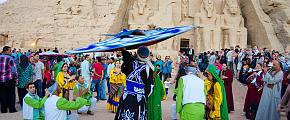Top 12 Israel Holidays in 2026
Israel truly holds great cultural appeal in the form of different aspects of national and local holidays. Just the sacred city of Jerusalem has been a very desirable destination for pilgrimage for countless followers across the world during the holiday season. Today we give you a list of the top twelve Israeli holidays. If you're seeking a unique side of Israeli culture, experiencing Israeli holidays would really hit the spot.
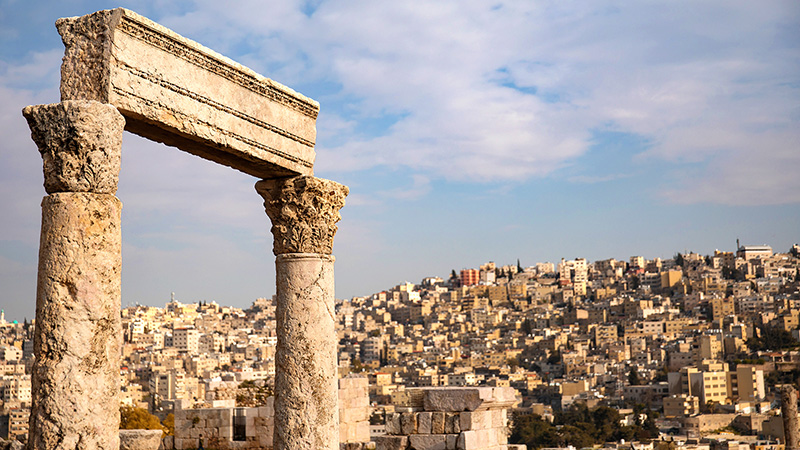 Jerusalem City
Jerusalem City
- Sabbath, Every Friday-Saturday
- Purim, March 2-3, 2026
- Yom Ha'Aliyah, March 27-28, 2026
- Passover, April 1-8, 2026
- Yom Ha'atzmaut, April 21-22, 2026
- Shavuot, May 21-22, 2026
- Tisha B'Av, July 22-23, 2026
- Rosh Hashanah, September 11-13, 2026
- Yom Kippur, September 20-21, 2026
- Sukkot, September 25 - October 2, 2026
- Simchat Torah, October 2-3, 2026
- Hanukkah, December 14-22, 2025
Sabbath, Every Friday-Saturday
To be more specific, the Sabbath begins from every Friday nightfall to every Saturday sunset. In the Bible, Saturday is played as the rest day, so Sabbath means the rest day. During the rest of the day, Jewish people don't do any labor but spend full time with their family and friends. During the Jewish Sabbath, you can enjoy the quiet streets in most cities, especially in Jerusalem. Many natural parks and beaches are bustling with parties on Shabbat for local and tourist families and groups. You can become a member of each group. Some cafes, restaurants, and shops remain open, catering to locals and tourists.
Notes: Sabbath is the observance of respecting rest, when restaurants, stores, bars, and public transportation are almost closed until Saturday sundown. Most businesses are closed for Sabbath observance, particularly in Jerusalem. If you seek to eat and shop, it's reasonable to stagger the two days. Or you can choose to stay in Tel Aviv or Haifa, where some restaurants, cafes, and shops remain open during Sabbath.
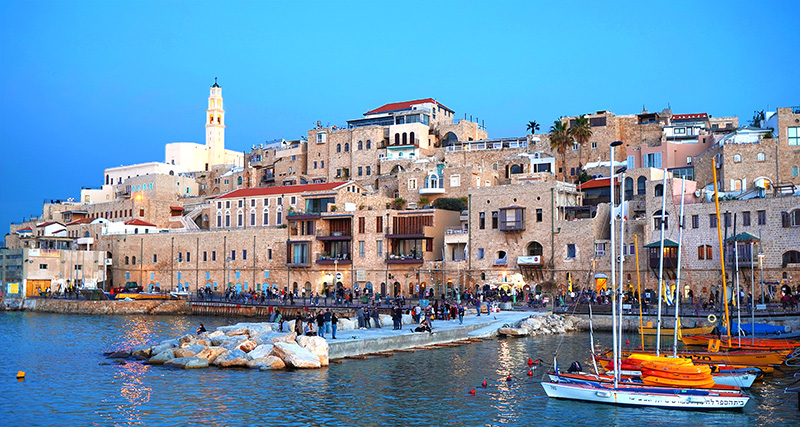 Tel Aviv
Tel Aviv
Purim (Salvation From Persia), March 2-3, 2026
Purim is popular as salvation from Persia. It is a delightful celebration annually. In 2026, it is observed from Friday nightfall to Sunday evening in March. Purim is the festive time for Jews to drink and have meals, especially with Israeli pastries and hamantaschen. In Israel's Purim, Jewish communities of all ages, wearing suits of colorful costumes and fascinating masks, make a big possession on the street and enjoy exciting parties and plays.
Notes: Businesses open as usual during Purim for people's food and gift-giving. Purim is about mirth, and drinking is an integral part of Purim. So it's reasonable to take a drink if you only just engage in a Jewish party. If you really have no tolerance for alcohol, try to avoid the gathering.
Yom Ha'Aliyah (Aliyah Day), March 27-28, 2026
On March 27-28, 2026, Yom Ha'Aliyah marks Hebrew Year 5785, originally in anticipation of the ascent towards Jerusalem, the holy shrine in the Hebrew Bible. Apart from religious significance, Yom Ha'Aliyah commemorates the great entry of Jewish communities to the land of Israel. The national population expresses festive delight and gratitude on Aliyah Day. Jewish people wear the Israeli flag behind their backs while parading on the roads. Never-ending singing and dancing, coupled with tasteful holiday treats and attractive games, make Yom Ha'Aliyah one of the most joyful holidays in Israel.
Notes: Yom Ha'Aliyah is so major that most businesses choose to close during the day. Some may still operate but provide fewer services.
Passover (Pesach), April 1-8, 2026
Passover is a significant holiday in Israel. It originates from the Biblical book of Exodus in memory of the liberation from oppression in ancient Egypt. Passover has eight days of observance from the evening of April 1st to sundown on April 8th, 2026. During Passover, Jewish people hold a special meal called Seder, including matzo, unleavened bread, and four cups of wine. After a meal, Orthodox Jews flock to the Wailing Wall and practice the religious tradition of Exodus storytelling, reading prayers, and singing Biblical songs.
Notes: The closure of restaurants, stores, and other public facilities is not compulsory during Passover. But remember that on the first and last day of Passover, some Jewish-run businesses provide no service or have fewer hours. As a way of respect, you had better not order any leavened grain food, like leavened bread, beer, and pasta in restaurants and shops, during a holiday.
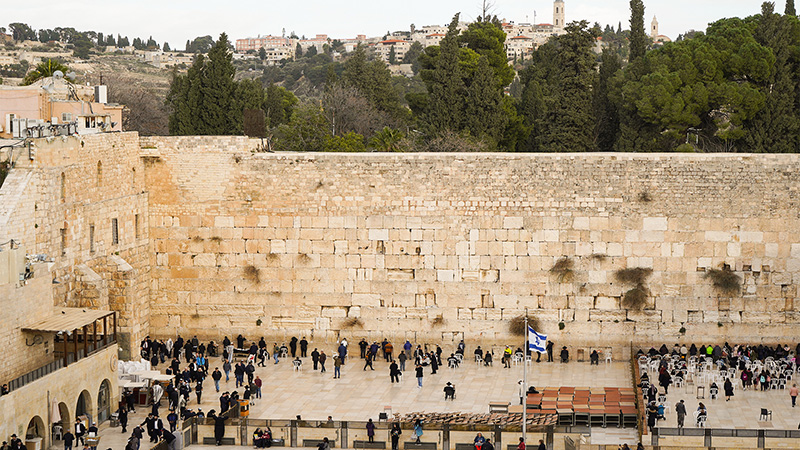 Wailing Wall
Wailing Wall
Yom Ha'atzmaut (Independence Day), April 21-22, 2026
Every year, Israeli people show their great patriotic enthusiasm for Yom Ha'atzmaut, a large national holiday celebrating the independence of the State of Israel. During the holiday, you can find nearly all corners flying Israeli flags. Many parades and other festivities are held to show respect and pride for the nation. There is a magnificent military parade, including an Army, Navy, and Air Force parade, to represent Israel's own citizens' reliable military strength. The following are examples of inspiring torchlighting and a beautiful display of fireworks. The holiday is just filled with joy and cheer when you can engage in vibrant concerts and dance with the Israelites.
Notes: As one of the biggest Israeli holidays, Yom Ha'atzmaut is outside of religion but a solemn ceremony nationwide, so many tourist attractions in Israel on Independence Day are closed, and you may plan to visit attractions around Yom Ha'atzmaut. Public transportation will still operate, but it will be limited. Businesses will provide reduced service during the celebration.
Shavuot (Feast of Weeks), May 21-22, 2026
Shavuot comes from the receiving of the Torah on Mount Sinai from God to the Israelites. Shavuot happens in June, at the time when the summer wheat has a good yield. Thus, Jewish people sacrifice wheat-made offerings to celebrate the harvest. The holiday is about thanksgiving and reflection. Religious Jews come in front of the Wailing Wall of Jerusalem, reciting the Biblical book of the Torah and chanting prayers. Besides, on Shavuot, every Jewish family traditionally puts flowers, plants, and other greenery in their homes and synagogues in gratitude for nature and agriculture.
Notes: The Israelites spent Shavuot studying and reading Biblical books, so you may find most shops and tourist spots don't open during the days. On Shavuot, the Wailing Wall will be covered and you should avoid photography of the wall. But as a tourist, you can enjoy a cello solo in the temple. In addition, you have opportunities to take leisurely horse riding, savor harvested fruits, and participate in various parties.
Tisha B'Av (Destruction of the Temple in Jerusalem), July 22-23, 2026
Unlike those full of joys and festivities, Tisha B'Av is regarded as the saddest day in the Jewish calendar. It's traditional communal mourning of the great loss in Jerusalem of the First and Second Temples in Jerusalem were completely destroyed. During the mourning day, Jews read from the Biblical books of Eicha, or Lamentations, and recite the Nahem prayer in front of the Wailing Wall in Jerusalem. It is customary to observe a 25-hour fast refraining from meat eating and wine drinking on Tisha B'Av. Also, wearing new clothes is not permitted.
Notes: Tisha B'Av is a solemn moment for Jews. It's respectful to avoid doing something with joy when you meet the fasting aspect and mourning. But you can visit the Western Wall and place your devout prayer onto the historic stones. Keep in mind not to wear leather shoes or read anything about the Torah. Business and visiting are also not allowed.
Rosh Hashanah (Jewish New Year), September 11-13, 2026
Rosh Hashanah is considered the Jewish New Year and is usually held in late autumn of September or October. One of the most impressive customs is the new variety of New Year delicacies. Apple slices dipped in honey are a symbolic dish to savor during the New Year. The Israelites will make a heartier meal than usual with round challah, tashlich (pieces of bread), kugel, and couscous.
Notes: Jews consider eating sweet delicacies could bring prosperity in the following year. Eating sweet foods is a must in Jewish communities. You should remember not to order bitter or vinegary foods on Rosh Hashanah. In the two days of Rosh Hashanah, Jews in Israel are busy with New Year's customs. Many restaurants and hotels may not operate. If you plan a trip to visit the holiday, you can enjoy a festival meal like locals do or visit a local synagogue and the Wailing Wall to experience the prayers by Jewish.
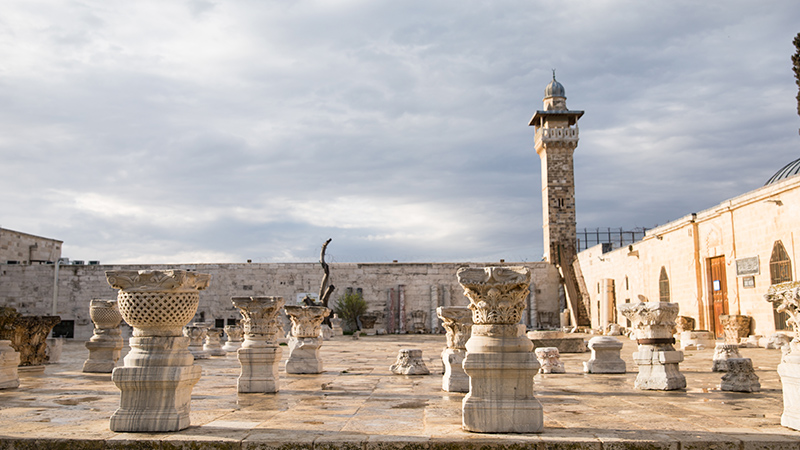 Jewish Quarter, Jerusalem
Jewish Quarter, Jerusalem
Yom Kippur (Day of Atonement), September 20-21, 2026
Yom Kippur, known as the Day of Atonement, centers around the themes of sin, atonement, and repentance. Candles are lit and burned for the entire holiday in homes and synagogues. Many Jews go to Orthodox synagogues to pray for the Kol Nidre. To avoid punishment from God, Jews will dress in white to reveal purity and cleanliness. At the end of the holiday, it is customary to do spiritual dancing and singing with the blowing of a tekiah gedolah, a lengthy blast on the shofar.
Notes: You will find all streets empty, and nearly all businesses are closed in most cities during Yom Kippur, as many Jewish people in Israel are required not to work while they fast and repent. Jews think talking about hunger and food only focuses their attention on them and hinders the fasting, so you try to avoid mentioning it during the fasting.
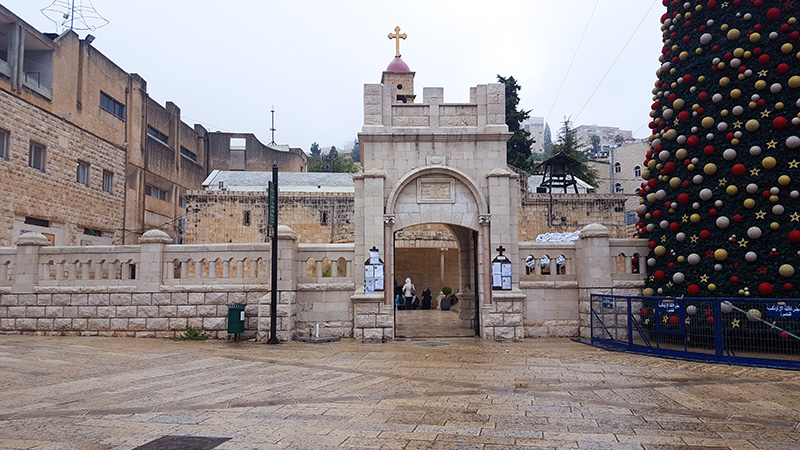 Orthodox Church of the Annunciation, Nazareth
Orthodox Church of the Annunciation, Nazareth
Sukkot (Feast of Tabernacles), September 25 - October 2, 2026
Sukkot is also called the Feast of Tabernacles. The most obtrusive tradition is to build a sukkah, a tiny wooden hut or booth, in the open air. The Israelites dwell and eat in the Sukkah during the Sukkot. The tradition is observed to remember the tough lives of their ancestors in the desert. In addition, the Israelites must practice another tradition of shaking the four species Etrog (Citron), Lulav (Palm Branch), Hadasim (Myrtle), and Aravot (Willow) in the daytime and best in the morning. This is an important ritual to pray for rain and harvest, and it symbolizes the merging of different nations of Israel.
Notes: Almost all Jewish-run businesses shut down at the beginning and end of Sukkot, while you can find non-Jew-owned shops open as usual, in particular on the intermediary days. As a tourist, you can experience holiday activities like street parties, big parades, and local music performances. Sukkot is more about the outdoors, so it is also a good time to get close to nature in Masada and the Dead Sea.
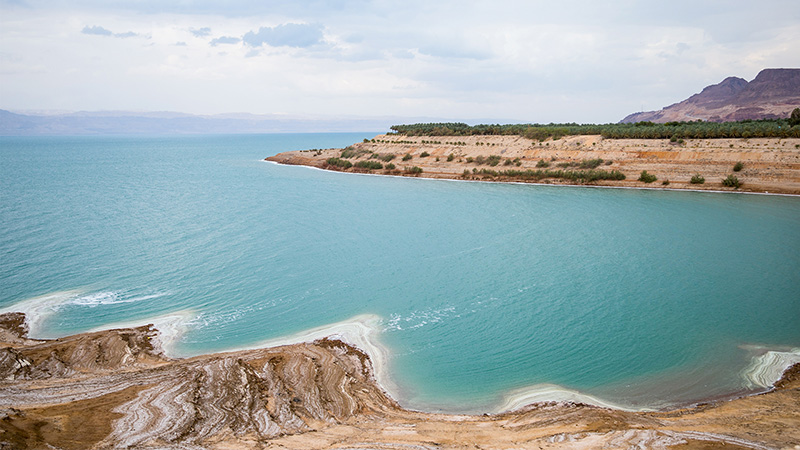 Dead Sea
Dead Sea
Simchat Torah (Rejoicing With the Torah), October 2-3, 2026
Simchat Torah also relates to Torah, a very important Biblical book among Jews. The holiday marks the grand finale of Torah readings and the beginning of the next yearly circle. The highlights of the celebration are maariv (carrying Torah scrolls) and hakafot (the Torah scroll procession). In the evening of the first day, Jewish communities gather at synagogue with a Torah scroll carried on their left arms while dancing and singing. Afterward, people make a procession, passing their own Torah scroll to other members. Simchat Torah is all about rejoicing at the completion of the reading and anticipating the next year.
Notes: The book of Torah holds great importance to Jewish people in Israel. If you're a non-Jewish traveler, you're still given chances to learn about the history of Judaism and Israel from the Torah. Like many other national holidays, many restaurants and shops are closed or have reduced their opening hours.
Hanukkah (Holiday of Lights), December 14-22, 2025
Hanukkah is also known as the Holiday of Lights, to honor a miraculous victory of light burning for eight days and nights over darkness. Hanukkah typically starts in late December. Candle lighting is an indispensable part of Hanukkah. Every night of the holiday, the Israelites light a colorful score of candles in the menorah at home and at their local synagogue. In addition to family lighting, a beautiful show of large candles and lights is staged in public places like gardens, parks, and cathedrals. It offers a great sight to capture. Eating festive treats can be another important tradition. Dishes like latkes (potato pancakes topped with sour cream) and sufganiyot (deep-fried jelly doughnuts) are commonly made.
Notes: Hanukkah forbids matters of green and red. If you plan on gift-giving, don't send gifts in red or green.
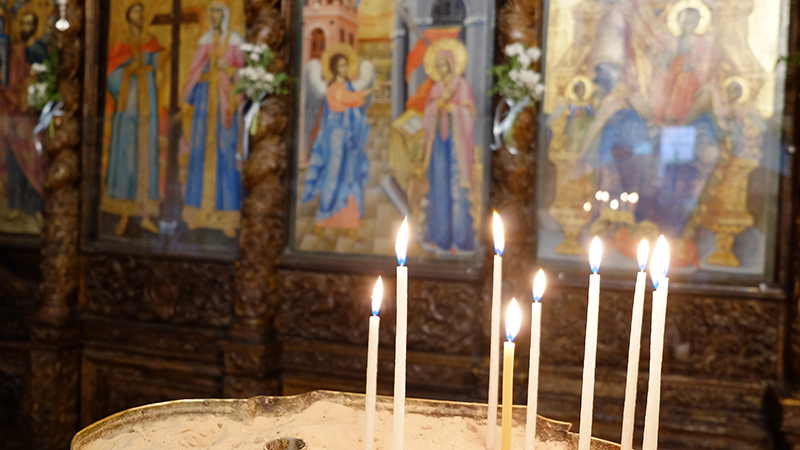 Candles in the Synagogue
Candles in the Synagogue
Travel With Odynovo to Experience the Israeli Culture
This holy tradition of Israeli culture allows you to experience diverse spiritual ceremonies. More information about Israel's big and small holidays and even holidays is accessible on our website. Please contact us if you have any queries. It would be better to travel with Odynovo. You will have a tailor-made journey to enjoy the exotic holidays and a sightseeing tour of local historical sites.
What Our Clients Say
Explore the latest verified reviews of Odynovo's travel services on Tripadvisor, Google, Trustpilot, Product Review and more trusted platforms.

